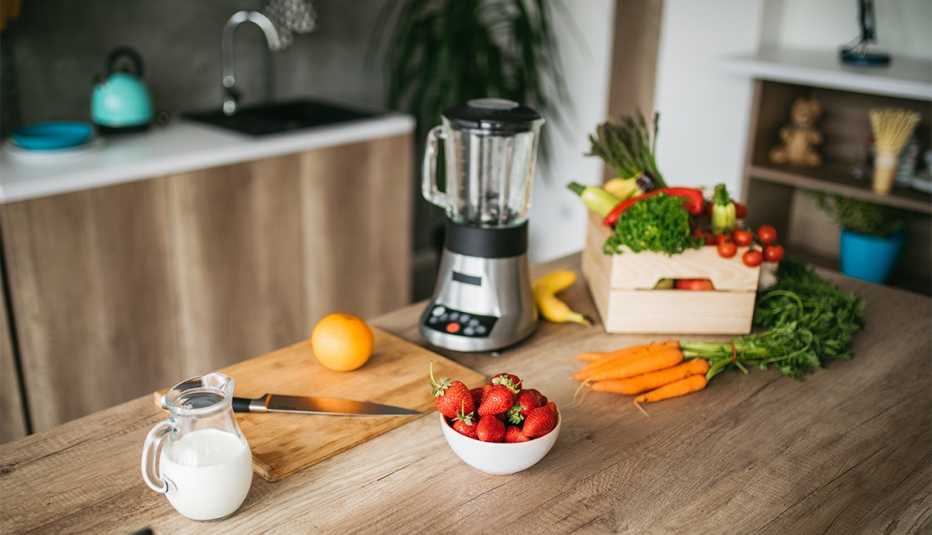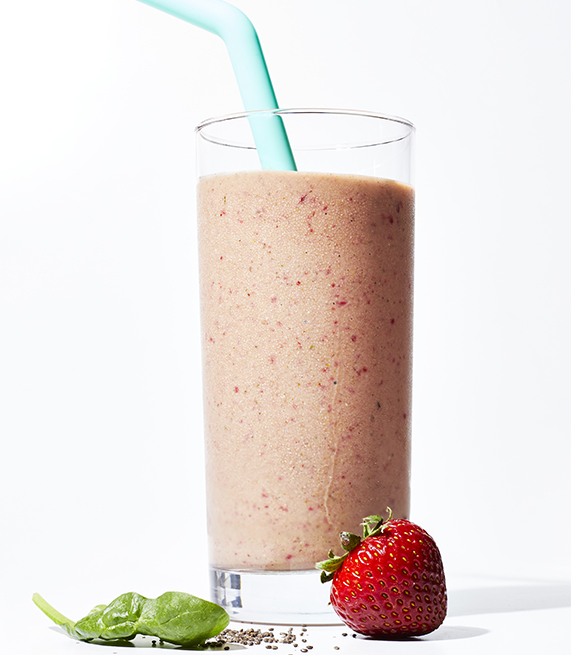AARP Hearing Center


Supermarket and drugstore aisles are filled with vitamins and supplements that promise to improve immunity. And in this, the year of the coronavirus, you may have considered stocking up on such offerings.
"Immune function, particularly in older adults, is very much a function of good nutrition,” says Charles Mueller, associate professor of clinical nutrition at New York University. But Mueller points out that, unlike foods, supplements are largely unregulated, and that a safer, more proven and effective way of supporting overall health is to eat real foods that deliver key nutrients. A great way to start: Whip up a nutrient-dense morning smoothie. Here's what your blender should include.
Kefir for probiotics
"The majority of our immune system resides in our gut,” says Manhasset, New York, dietitian Julie Kramer. “It's important that we support the microbiome there with healthy bacteria.” Kefir is a fermented milk product loaded with probiotic microorganisms.
Substitute: unsweetened yogurt
Pineapple for vitamin C
To sweeten your smoothie, opt for fruits like pineapple, citrus and berries that are high in vitamin C, which is crucial to immune function.
Substitutes: strawberries, kiwi, papaya or mango
Fortified dairy for vitamin D
Adequate vitamin D helps protect against flu and other infections. Options: milk, kefir or unsweetened yogurt fortified with vitamin D
Spinach for iron
These leafy greens are rich in iron as well as folate, a B vitamin that supports the immune response.
Substitutes: peanut butter, steamed kale
Almond butter for magnesium and vitamin E
Both nutrients, found in nuts and seeds, support immunity and heart health.
Substitutes: peanut, cashew or sunflower seed butter; chia, flax or hemp seeds
Chia seeds for zinc
Zinc helps the immune system fight off bacteria and viruses.
Substitutes: hemp or flax seeds
Pick your protein
Whether you get it from soy, cow's milk, or plant- or whey-based protein powder, protein is vital to building and repairing the body's cells, including those that fight infection.


Ingredients
• 1 cup plain vitamin D–fortified kefir (or 1/2 cup plain yogurt and 1/2 cup fortified milk)
• 1/2 banana, fresh or frozen (for sweetness and creaminess)
• 1 cup frozen strawberries, mango or pineapple
• 1 tablespoon almond butter
• 1 cup fresh spinach leaves
• 1 teaspoon chia seeds
• 1 scoop protein powder (optional)
Blend ingredients together for about a minute, until smooth. Add water or ice to change consistency or temperature to your preference.



































































More From AARP
What Should Your Diet Be Like After 50?
As our bodies change, so do our nutritional needs
What to Cook From Your Pantry
A chef shares tasty, easy recipes with shelf-stable ingredientsIs Food as Healthy and Tasty as It Used to Be?
Coronavirus shortages prompt a foodie to reflect on 50 years of change